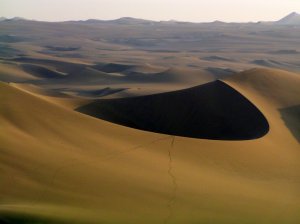“The Universe is many but it is also one: below the infinite diversity must run some unifying theme, one that can be discovered through our attempts at synthesis.”
This line from Ernesto Sabato’s One and the Universe stuck out to me. Reading it made me think of two points in my life that this quote resonated with.
I attended a Jesuit run private-school, and as such we had a strong religious aspect to our education. The Jesuit education I received in high-school culminated in a class called Senior Synthesis. In this class we had to write a forty page paper synthesizing our lives in the context of our four years in high-school. It was an experience that I bemoaned at the time (writing roughly forty pages in one or two days really bummed out a second-semester senior), but ultimately was one that I am extremely grateful for. Synthesis is a combination of two or more entities that results in something entirely new, and to have gone through the process, I can see that Sabato is correct in his statement. After reflecting on the lowest, highest, and most profound moments in my life to find the questions I found most important, I researched what various faith traditions believed about those questions. After the research I reflected again, and was challenged to put into words my ideologies; to create the foundation for the beliefs I would carry out of my adolescence and into the world.
It was during all this reflecting, researching, and synthesizing that I recalled the most profound moment of my life. I once had the opportunity to spend a night camping in the Ica Desert in Southern Peru. It was a stereotypical desert, dunes as tall as mountains and as far as the eye could see. In the middle of the night I climbed to the top of a nearby dune to relieve my bladder. After doing so I looked up and came to a great realization. The universe is freaking massive. I don’t know if you’ve ever been on top of a literal mountain of sand only to look up at a perfect view of the milky way, but it is quite literally a breathtaking sight. Individual grains of sand were tiny to me, but I was even smaller to the stars. It was an interesting moment, to be able to see how vast the universe was, to know how small a part of it you are, but to realize that you are indeed part of the massive construct.
During my synthesis process I began to appreciate that moment even more. Looking at all the events in my life and having had an existential moment like my experience in Ica, I began to almost see a thread in the Universe. During a process where I brought myself together, it was as if almost all things were coming together. I could go on, but there is a forty page paper dedicated to that, so I’ll wrap up this blog post by saying that Sabato’s line resonated with me strongly. It doesn’t really represent the paper as a whole, but that single line is probably what I’ll remember most.
This is an image of the desert itself, for those who were interested.
.

Recent Comments